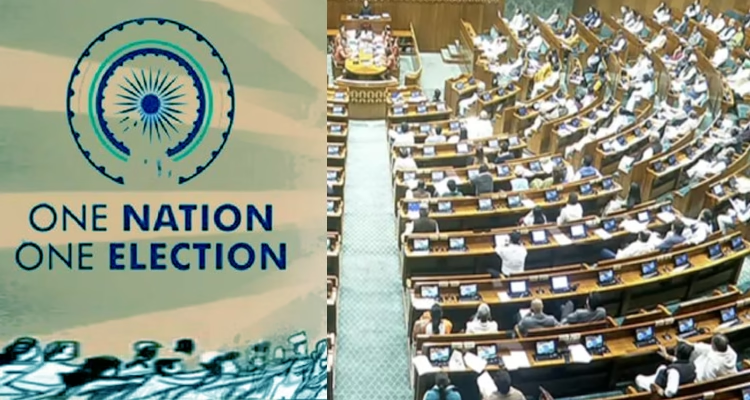
New Delhi: The Union Law Minister, Arjun Ram Meghwal, introduced the ‘One Nation, One Election’ Bill (Constitution 129th Amendment Bill, 2024) in the Lok Sabha today. The bill aims to synchronize national and state elections across the country. Following its introduction, reports suggest that the government plans to refer the bill to a Joint Parliamentary Committee (JPC) for further deliberation.
Ahead of the session, the ruling Bharatiya Janata Party (BJP) issued a whip to its Members of Parliament (MPs), while the Congress convened an emergency meeting, also issuing a three-line whip to its members. The opposition parties, however, have voiced strong objections to the proposed bill.
Congress MP Manish Tewari labeled the bill unconstitutional, while senior leader Jairam Ramesh accused the government of attempting to alter the Constitution. Samajwadi Party MP Ramgopal Yadav declared his party’s opposition, as did Shiv Sena (UBT) MP Priyanka Chaturvedi, who called the bill an attack on the Constitution. Trinamool Congress MP Kalyan Banerjee also expressed his opposition, asserting that the bill contradicts the core values of the Constitution.
Samajwadi Party chief Akhilesh Yadav described the proposal as yet another attempt to undermine the Constitution, and All India Majlis-e-Ittehad-ul-Muslimeen (AIMIM) leader Asaduddin Owaisi termed it anti-democratic.
On the other hand, the BJP’s allies have shown support for the bill. The Telugu Desam Party (TDP) expressed full backing, issuing a whip to its MPs, while YSR Congress Party (YSRCP) MP PV Mithun Reddy also supported the bill, noting that his state already conducts simultaneous state and national elections.
Union Minister Kiren Rijiju defended the bill, emphasizing that it is a matter of national interest, not party politics. He criticized the opposition, particularly Congress, for maintaining a negative stance. Rijiju reminded the House that India initially had a system of ‘One Nation, One Election’ at the time of independence, which was later altered to suit Congress’ political agenda. He argued that the frequent elections in the country are a financial burden and hinder national progress.



